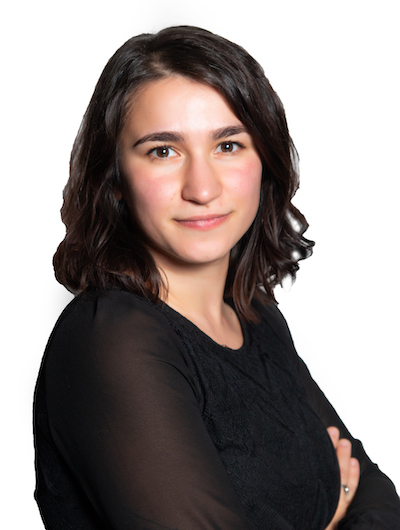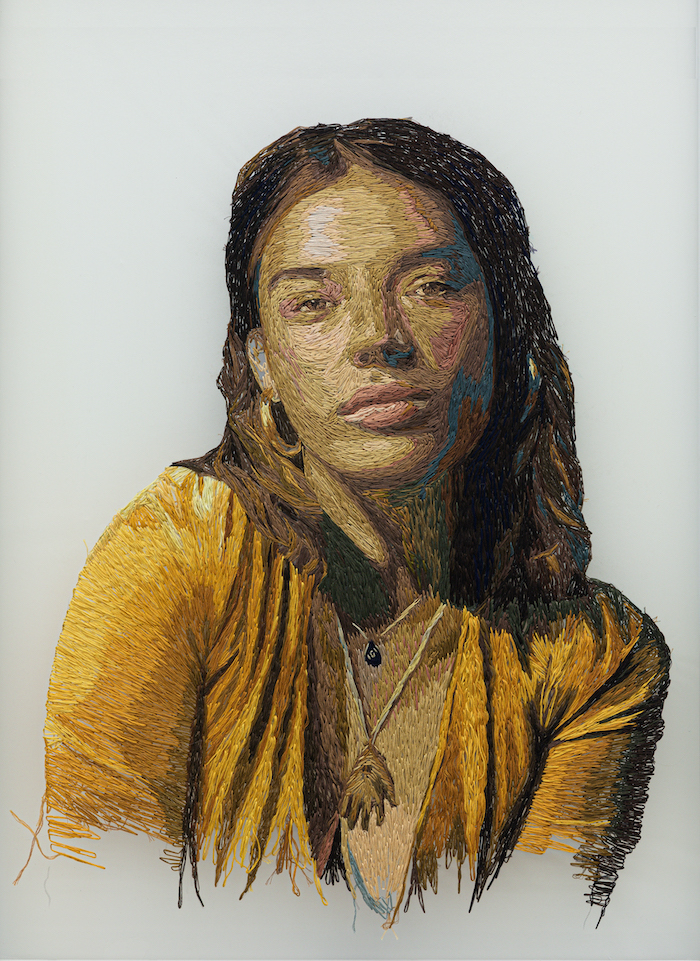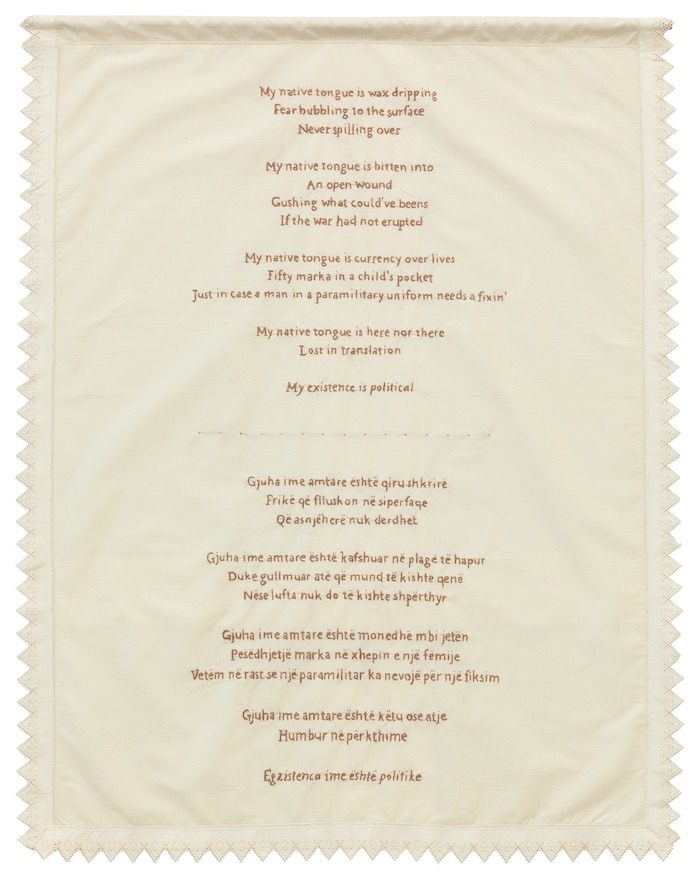Artist’s Statement
When I think of voter’s rights, I think of citizenship and legal identification. I am the daughter of immigrants. When my parents became citizens, it gave them a new identity, protection, security, and comfort. In this work, I weave a story from the perspective of someone who is going through the lengthy process of gaining citizenship. The figure on display is my friend Drenusha Kolshi. As a child, her family immigrated to America from Kosovo in 1999, fleeing a civil war. As an adult she recognized the privileges and comforts that come with becoming naturalized. My conversations with Drenusha inspired me to think about the ways in which individuals are identified within society. In this work, I wanted to visually mimic an ID portrait. Identifiers like height and nationality are not listed here. The poem, written by Drenusha herself, signifies the deeper personal lives that all people live—both immigrants and citizens. The embroidered portrait and the poem, considered together, represent the vast amount of expressive freedom that is afforded those with citizenship. These expressions not only define who we are as individuals, but as a collective whole, they are what makes our society great.

Biography
Beizar Aradini (b. 1991) was born in Mardin, Kurdistan, and immigrated with her family to Nashville, Tennessee, in 1992. Her work unravels her family’s story as immigrants and examines cultural displacement and duality through fiber practices that have been important to her Kurdish identity. Her work has been featured in exhibitions such as Between the Seams at Woman Made Gallery in Chicago and Take Refuge at Coop Gallery in Nashville. Aradini has worked on many community projects, including murals and workshops at the Oasis Center and Nashville Healing Arts for the Tennessee Mental Health Consumers’ Association.
Artwork


My Existence is Political, 2019
Embroidery thread on fabric
Poem by Drenusha Kolshi
Translation by Mimoza Kolshi
